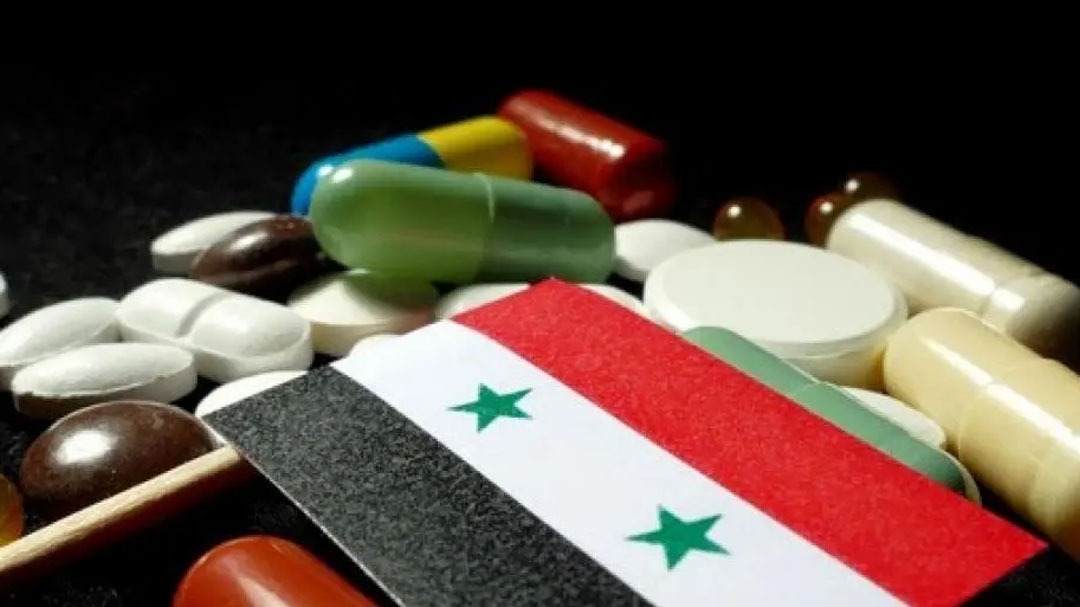-
Restructuring Syrian Media: Policies and Press Freedom Concerns

The President of the Council of Ministers in the Syrian regime, Mohammad Ghazi al-Jalali, has directed the Ministry of Information to study the restructuring of media institutions and resolve the issues related to human resources within them. This came during a session of the Council of Ministers, where the Ministry of Information's vision for developing national media policies was discussed, based on the directives of the regime's president.
Discussions focused on the importance of establishing a comprehensive media policy that enhances the role of government media and facilitates access to information through the media offices of public entities. The Ministry of Information's memorandum was referred to the Human Development Committee for study in preparation for its submission to the council for a final decision.
The regime's Minister of Information, Ziad Ghosn, confirmed to the pro-regime newspaper "Al-Watan" that this vision aims to lay the "foundation for a new media policy by organizing dialogue sessions that include all media activities, both public and private." He also pointed to the efforts being made to amend the media law in cooperation with journalists and relevant media outlets.
Despite the Syrian regime's statements about developing and restructuring the media, the reality indicates a further tightening of media freedom, as evident from the new media law approved by the People's Assembly last March. This law raised widespread concerns among journalists working in regime-held areas, as they accused the media draft of marginalizing their views and distorting them in its formulation, increasing fears of censorship pressures and the regime's control over media production.
Ironically, Ziad Ghosn criticized the new law before assuming the position of Minister of Information, noting that it represents a significant regression compared to the previous law. He clarified at the time that Article 15 of the draft allows for the suspension of journalists for allegedly circulating or publishing unreliable or prohibited information, which he considered a response to external pressures, and called for more comprehensive clarifications and a genuine media code of ethics.
Ghosn also expressed his objection to the law’s neglect of the rights of independent journalists, as it restricts their work to using cards issued by the union or the Ministry of Information, thus hindering their professional independence. He also raised concerns about the amendment that grants the Minister of Information the authority to form a special committee to penalize violators, indicating that this measure shifts judicial authority to a committee within the ministry, raising questions about the constitutionality of this decision.
Syria continues to rank at the bottom of press freedom indicators, occupying the last place in the Arab world and 175th globally in 2023, according to the "Reporters Without Borders" report, which confirmed that the Syrian regime uses social media to monitor and arrest critics, even among its supporters, based on their online writings.
You May Also Like
Popular Posts
Caricature
BENEFIT Sponsors BuildHer...
- April 23, 2025
BENEFIT, the Kingdom’s innovator and leading company in Fintech and electronic financial transactions service, has sponsored the BuildHer CityHack 2025 Hackathon, a two-day event spearheaded by the College of Engineering and Technology at the Royal University for Women (RUW).
Aimed at secondary school students, the event brought together a distinguished group of academic professionals and technology experts to mentor and inspire young participants.
More than 100 high school students from across the Kingdom of Bahrain took part in the hackathon, which featured an intensive programme of training workshops and hands-on sessions. These activities were tailored to enhance participants’ critical thinking, collaborative problem-solving, and team-building capabilities, while also encouraging the development of practical and sustainable solutions to contemporary challenges using modern technological tools.
BENEFIT’s Chief Executive Mr. Abdulwahed AlJanahi, commented: “Our support for this educational hackathon reflects our long-term strategic vision to nurture the talents of emerging national youth and empower the next generation of accomplished female leaders in technology. By fostering creativity and innovation, we aim to contribute meaningfully to Bahrain’s comprehensive development goals and align with the aspirations outlined in the Kingdom’s Vision 2030—an ambition in which BENEFIT plays a central role.”
Professor Riyadh Yousif Hamzah, President of the Royal University for Women, commented: “This initiative reflects our commitment to advancing women in STEM fields. We're cultivating a generation of creative, solution-driven female leaders who will drive national development. Our partnership with BENEFIT exemplifies the powerful synergy between academia and private sector in supporting educational innovation.”
Hanan Abdulla Hasan, Senior Manager, PR & Communication at BENEFIT, said: “We are honoured to collaborate with RUW in supporting this remarkable technology-focused event. It highlights our commitment to social responsibility, and our ongoing efforts to enhance the digital and innovation capabilities of young Bahraini women and foster their ability to harness technological tools in the service of a smarter, more sustainable future.”
For his part, Dr. Humam ElAgha, Acting Dean of the College of Engineering and Technology at the University, said: “BuildHer CityHack 2025 embodies our hands-on approach to education. By tackling real-world problems through creative thinking and sustainable solutions, we're preparing women to thrive in the knowledge economy – a cornerstone of the University's vision.”
opinion
Report
ads
Newsletter
Subscribe to our mailing list to get the new updates!






















